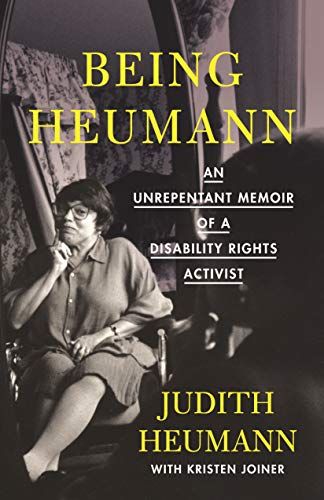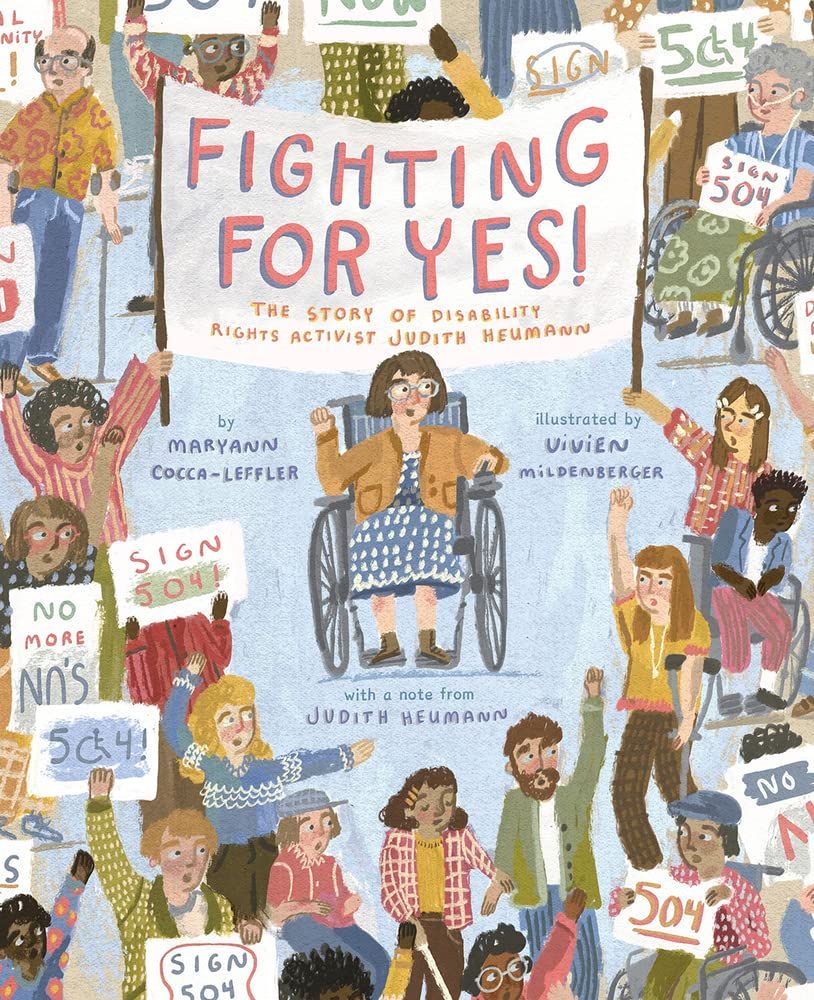When I saw a social media post saying that Judy Heumann died, my first response was no no no, hopefully this is misinformation. I knew she had been in the hospital, and I hoped that this was one of those macabre false information posts about a celebrity’s death. But a few hours later, it was confirmed: Judith Heumann had died at the age of 75, on March 4, 2023.
I first learned of Judy Heumann back in 2020 when I watched the documentary Crip Camp on Netflix. All I could think was how have I not heard of her before? (Spoiler alert: ableism). Heumann exuded warmth and infectious kindness in the documentary, along with a tenacity that made her a force to be reckoned with. I immediately started following her on social media, and saw that she still had the same headstrong spirit she showed in the documentary.
The daughter of German Jewish immigrants, Heumann contracted polio when she was 18 months and used a wheelchair for mobility. When she was 5, her parents went to register her for school and they were told they couldn’t because she was a “fire hazard” due to her use of a wheelchair. Her parents fought for her right to go to school, and eventually she was allowed to go.
When she graduated from Long Island University in 1969 and wanted to become a teacher, the NY State Board of Education ruled in 1970 that she wouldn’t be able to help children out of the building in case of an emergency and refused to grant her a teaching license. Heumann sued, the case was settled out of court, and Heumann taught elementary school for several years. She also went on to earn a graduate degree in public health from Berkeley.
Seeing how much support she got from disabled people all over the country during that experience, she and some friends founded Disabled in Action (DIA), an organization that wanted to make sure that disabled people were protected under civil rights laws. Later, she helped organize the Section 504 sit-in, and played a significant part in developing and making national disability rights legislation a reality, including IDEA (Individuals with Disabilities Education Act), the ADA (Americans with Disabilities Act), the Rehabilitation Act, and the UN Convention on the Rights of Persons with Disabilities.
She refused to accept the dominant narrative that her life should be any less than anyone else’s, simply because she was disabled. In the documentary, she explained, “I’m very tired of being thankful for accessible toilets. If I have to be thankful for an accessible bathroom, when am I ever gonna be equal in the community?”
In 1992, Heumann married Jorge Pineda, and they made their home in Washington, DC.
She also helped found multiple organizations for disability rights and services, and served in positions for two different presidential administrations. In addition, she was the first adviser on disability and development for the World Bank. In 2017, she was arrested with other disability activists, for protesting the administration’s attempts to destroy the Affordable Care Act. In her work with the Ford Foundation, she worked to incorporate disability inclusion in the work of the Foundation. Her podcast, The Heumann Perspective, started in 2021, where she spoke with disabled changemakers and activists, as well as their allies.
Heumann, Disability Literature, and her Legacy
When Crip Camp first came out, I felt like it brought conversations about disability justice into more settings.


The picture book Fighting for Yes!: The Story of Disability Rights Activist Judith Heumann was not written by Heumann, though she did pen a note for the book. It’s a great introduction for kids about all of the work Heumann did and disability rights in the US. When my son heard me talking about Heumann’s death, he remembered we had this book and immediately wanted to reread it.
But she was also a huge supporter of other disabled artists, writers, and creators. Heumann, along with the release of Crip Camp, helped to bring disability justice to those who may not have been aware of it otherwise. It brought disability rights into the spotlight, paving the way for books published several months later, like Alice Wong’s Disability Visibility, to be highlighted. Keah Brown paid tribute to Heumann on her Instagram, as did Disability Reframed and celebrities and activists like Marlee Matlin, Haben Girma, and Maria Shriver.
It is hard to overestimate the impact Heumann has had on not just the disability rights movement, but the world. She was a trailblazer, fighter, and tireless advocate. If you, your child, or someone you love has a 504 plan or an IEP, Heumann’s advocacy and hard work helped make that happen.
Heumann once said, “Some people say that what I did changed the world. But really, I simply refused to accept what I was told about who I could be. And I was willing to make a fuss about it.”
May her memory be for a blessing, and more importantly, for Revolution.
If you’d like to read more, check out this post on books to read for the 30th anniversary of the ADA, and this post on 10 books to introduce readers to disability literature.




